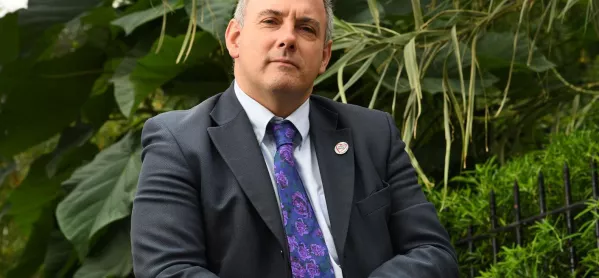‘De facto school closures’ ahead, warns MP

Schools are moving towards “de facto” closures because of Covid absences, a leading MP has warned.
Robert Halfon, chair of the Commons Education Select Committee also asked the government why there was not an army of retired teachers ready to support schools during the pandemic.
In an urgent question in the House of Commons today (Wednesday 15 December) he said that “despite government assurances, it seems to me we are moving sadly towards de facto school closures”.
He added that “despite the heroic efforts of teachers and support staff” during the pandemic, the “four horsemen of the educational apocalypse have been galloping towards our young people”.
The select committee chair also highlighted the issues of “ghost children” who had not returned to school rolls, mental health problems among young people, the attainment gap and a rise in safeguarding hazards.
“The government has stated they want to keep schools open but what is the plan in order to do so - what measures are being taken to ensure that, should educational staff be required to isolate, there is a network of supply teachers able to step in?”
- News: Fears school closures ‘inevitable’ as pupil cases soar
- Omicron: Heads warn of school closures
- School closure chaos: What DfE knew about Covid variant
Mr Halfon also asked whether additional funding was being made available to ensure adequate ventilation in schools.
Skills minister Alex Burghart said the government was “absolutely clear” that the best place for pupils was in school with face-to-face teaching and added that the Department for Education had a “range of work underway in response to this fast-moving situation”.
He said he believed there were 14 hospitalisations from Omicron and the rate of case doubling was every two days. “To deal with this”, the DfE was focused on testing, vaccination, ventilation and hygiene.
Mr Burghart said the DfE had recommended that at the start of next term all secondary pupils would be tested for Covid with flexibility about when schools returned and additional funding to ensure the testing was available.
And he said 99 per cent of schools had received a CO2 monitor and that schools were running “comprehensive” hygiene programmes.
Government challenged over 12- to 15-year-old vaccine rollout
Shadow schools minister Stephen Morgan challenged the government over its pupil vaccination record, stating: “Most concerningly, the weekly number of jabs administered to 12- to 15-year-olds has dropped by 80 per cent since half term,” and asking: “Will the minister commit to deliver a vaccine guarantee so that all young people can get their jab by the end of the Christmas holidays?”
The minister didn’t make any commitment in response to Mr Morgan’s call.
Lib Dem MP Sarah Green said “Our children cannot afford for schools to close again or to miss more face-to-face teaching through absence,” adding that evidence showed ventilation in schools reduces the airborne risk of coronavirus by up to 70 per cent.
“Other countries have already rolled out ventilation equipment to their schools and are seeing the benefits. When can we expect the results of the Bradford pilot scheme to be published and when can schools expect ventilation equipment to be delivered?”
Mr Burghart said the government took ventilation very seriously and that the government had exceeded its target for CO2 monitors in delivering 300,000 monitors to schools.
James Bowen, policy director for the NAHT school leaders’ union, said: “Given how crucial ventilation is in the fight against the spread of Covid in classrooms, we simply cannot work on the basis that only those schools that can afford air purification devices are able to access them.
“The government owes all children a safe and comfortable environment in which to learn, with minimum disruption to education. If air purifiers can help with that they must be available to all.”
You need a Tes subscription to read this article
Subscribe now to read this article and get other subscriber-only content:
- Unlimited access to all Tes magazine content
- Exclusive subscriber-only stories
- Award-winning email newsletters
Already a subscriber? Log in
You need a subscription to read this article
Subscribe now to read this article and get other subscriber-only content, including:
- Unlimited access to all Tes magazine content
- Exclusive subscriber-only stories
- Award-winning email newsletters
topics in this article



